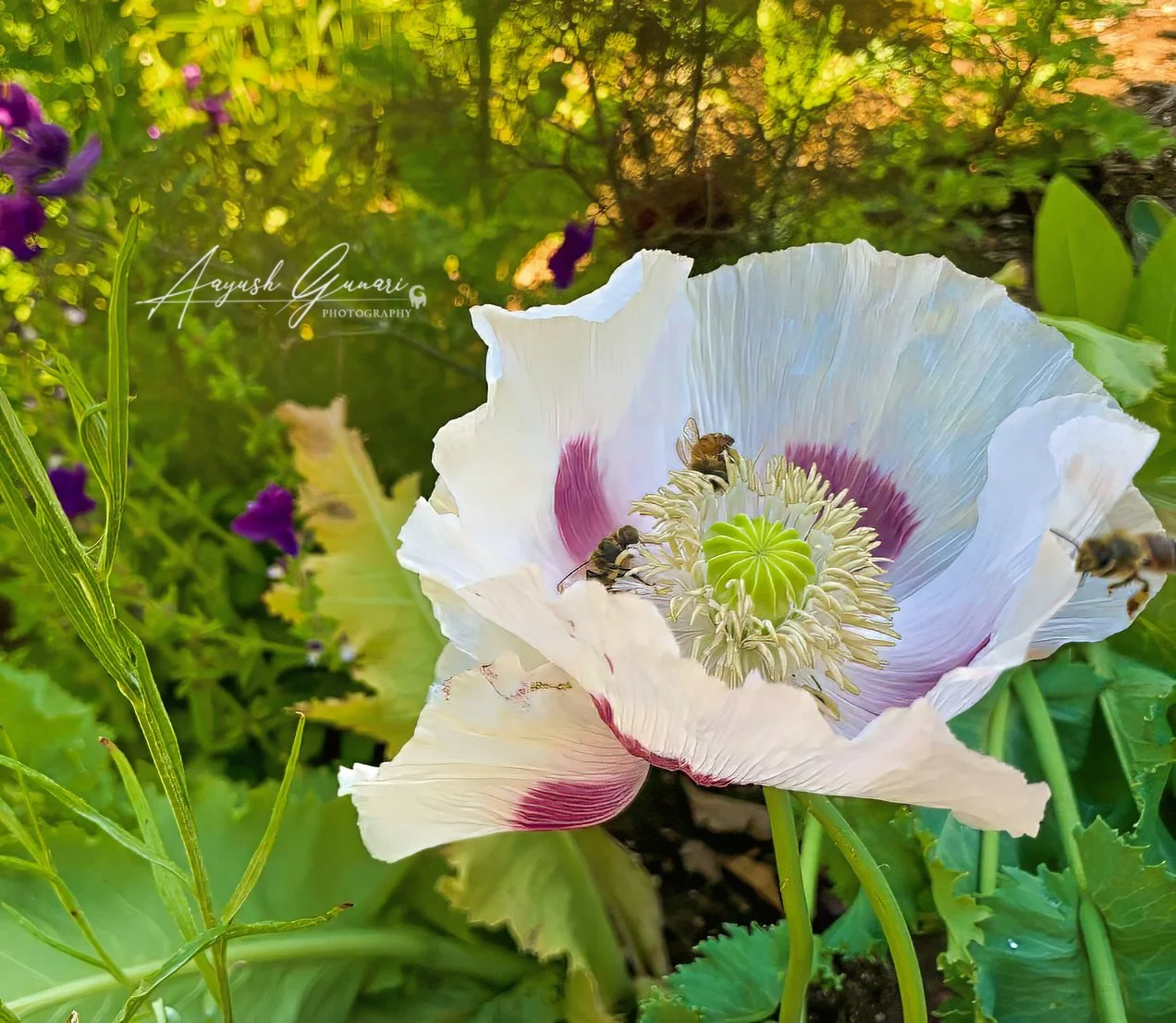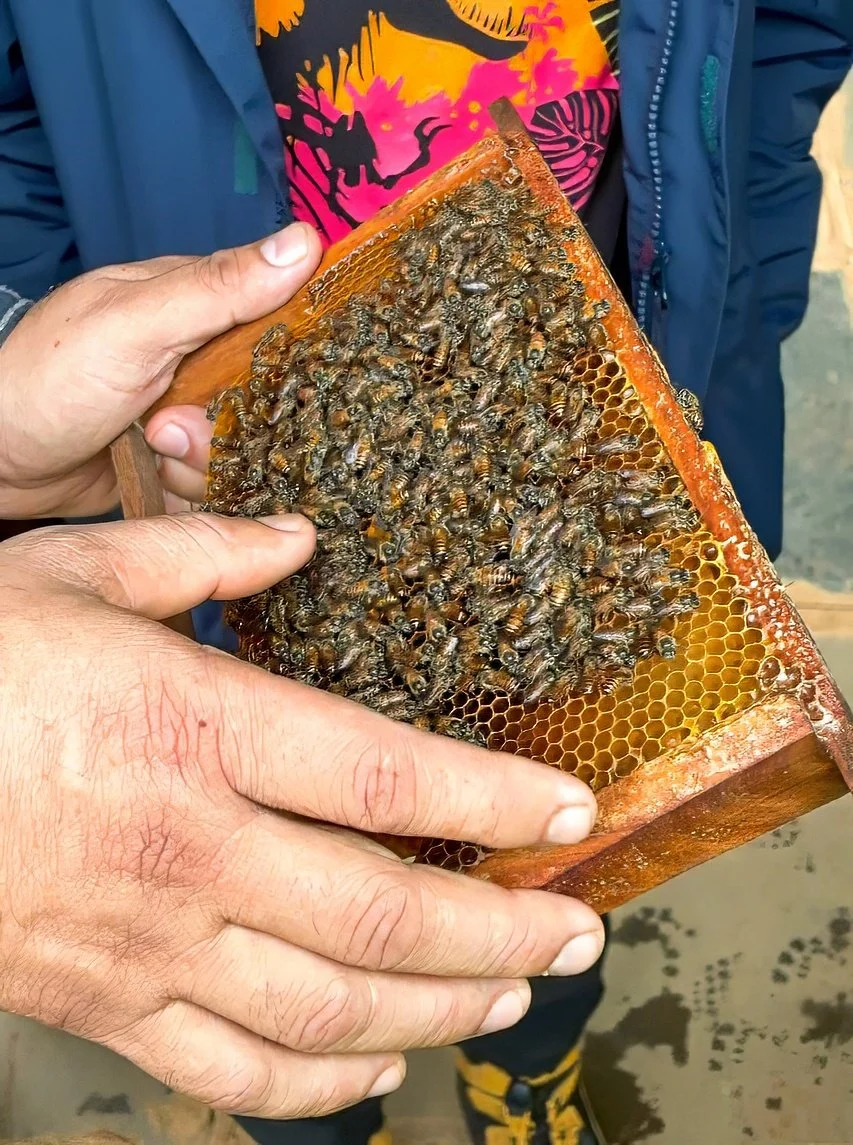No Bee, No We: A Story about the Honeybees
Sometimes, it’s the tiniest creatures that make the biggest difference. We often think power comes from size or strength, but in nature, that's not always true. One of the smallest insects on Earth—one we usually ignore or even fear—is actually keeping our entire world alive. I’m talking about bees, the ones who uphold our ecosystem.
Every day, a single bee visits around 10,000 flowers, moving from one bloom to the next in search of nectar—a sweet liquid found inside flowers. The bee uses its long tongue to drink the nectar and stores it in a special part of its body called the honey stomach (not the same as its food stomach). This is like a little nectar backpack the bee carries around while it’s foraging.
Worker Bees
Once the bee’s honey stomach is full, it flies back to the hive and passes the nectar to another bee by mouth. That bee chews the nectar for about 30 minutes, breaking it down with enzymes. Then, the nectar is placed into a wax cell of the honeycomb. The bees fan it with their wings to help the water evaporate, turning the nectar into thick, golden honey. Finally, they seal the cell with a wax cap to keep the honey fresh.
To make just one drop of honey, a bee would have to repeat this process about 4 million times!
While collecting nectar, bees also play another vital role. As they land on flowers, tiny yellow grains called pollen stick to their fuzzy bodies. When they fly to the next flower, some of that pollen rubs off. This simple act is called pollination, and it helps plants reproduce by spreading pollen between flowers.
Bees are responsible for about 85% of all pollination on Earth. That means most of the fruits, vegetables, and plants we rely on exist because of them. Without bees, pollination would become incredibly difficult, and the natural balance of food production would be disrupted. Plants would struggle to grow, harvests would become smaller, and many animals—including humans—would feel the impact. It would change the way our ecosystems function and put a strain on the food we depend on. That’s why the amazing team at Kaadumane’s Honey Park in Dandeli, India, says it best: “No Bee, No We.”
In Dandeli, India, Mr. Narasimha Bhat has created an amazing place called Honey Park. In Honey Park, he cultivates several bee hives and grows many flowers to help the bees. Through demonstrations, his goal is to educate the local community about the importance of honeybees in the ecosystem. He has provided local employment opportunities and has educated many high school students who come on field trips to Honey Park. Across the forest, he has created boxes for bees to build their hives. He encourages people to plant local plants that help honeybees. When I visited Honey Park, they did an excellent job of educating us about the importance of honeybees. To learn more about their work you can visit their website Dandeli Honey Park
Bee Colony
The bee colony is like a perfectly run team. Every bee has a job, and they all work together to build and maintain the hive. Some are workers, some are nurses, some are foragers, and others are guards—and each bee sticks to its role without needing to be told what to do. It’s like nature’s version of teamwork at its best.
At the center of the colony is the Queen Bee. She doesn’t rule with power, but by keeping the hive going—mainly by laying eggs to grow the next generation. The whole colony depends on her, and the other bees protect her at all costs. If something or someone threatens the hive or the Queen, the bees will quickly come together to defend their home.
A lot of people are scared of bees because of their sting, but the truth is, bees don’t want to hurt you. They only sting when they feel threatened or scared. And when they do, they actually lose their stinger—and die shortly after. So while a bee sting might cause us a little pain, for the bee, it’s a life-ending move for them.
Bees are the very backbone of our ecosystem. Without them, we wouldn’t exist. After reading this blog, I hope the next time you see a bee, you take a moment to appreciate the amazing things these small insects do.


